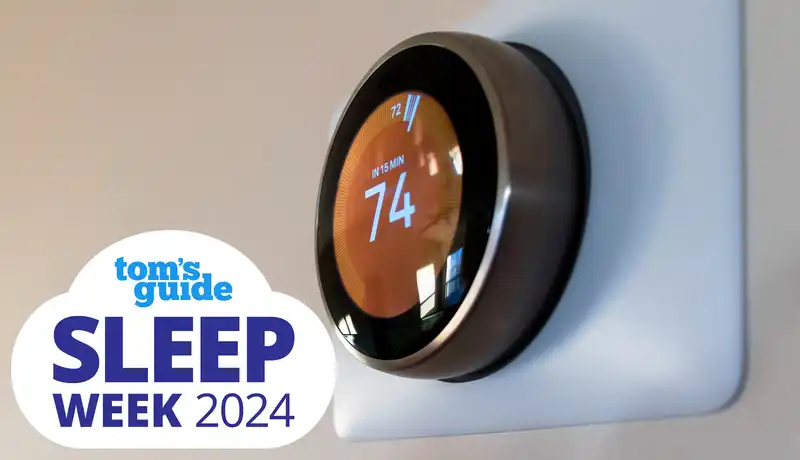With the best smart thermostats, you can optimize your bedroom for a deeper, more comfortable sleep Once you're cozy under the covers, you can adjust the temperature using voice commands on your phone or smart speaker This prevents sweating in the heat between the sheets or waking up shivering in the winter because the room is too cold
To take it to another level, you can set up a schedule or automation so that the smart thermostat adjusts itself as soon as your head hits the pillow Here are a few ways to use a smart thermostat to optimize your bedroom, encourage rest, and ensure that sleep is not disturbed
Prepare for sleep by gradually lowering your home's temperature at night Customize the cooling schedule on your smart thermostat to 65 degrees (or lower if you prefer) around an hour before bed Next, set the temperature to rise when you wake up in the morning This way, the climate synchronizes with the body's natural sleep-wake cycle, making it easier to get in and out of bed
After completing your nightly routine, you can comfortably jump into bed without having to worry about getting up to adjust the temperature Simply use the smartphone app or connect the smart thermostat to your smart speaker or display, and you can control it with voice commands This will relieve stress and allow your muscles to rest so you can fall asleep
Smart thermostats with air purification sensors can measure pollutants in the bedroom It can then automatically run programs to filter and reduce pollutants, creating a cleaner, healthier sleeping environment Breathing easier without inhaling dust allows you to focus on staying asleep without coughing before bed
Humidity control helps prevent rooms from becoming excessively dry or damp An optimal environment that does not cause you to sweat or wake up with a bloody nose will help you fall asleep faster The ideal humidity for sleep is 40-60%, so aim for 50%
A smart thermostat will not only make your home more convenient, but it will also save you money and keep you up at night You can lower your smart home energy usage by scheduling your smart thermostat to turn off the air conditioning system while you are out of the bedroom and re-activate it when you return More expensive models with occupancy sensors learn the times you come and go so you don't have to schedule them This automatically makes the space more comfortable while you are active and less breezy when you are away










Comments